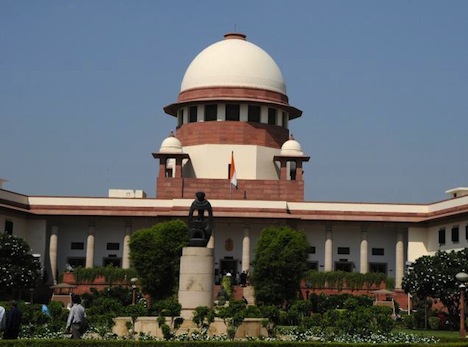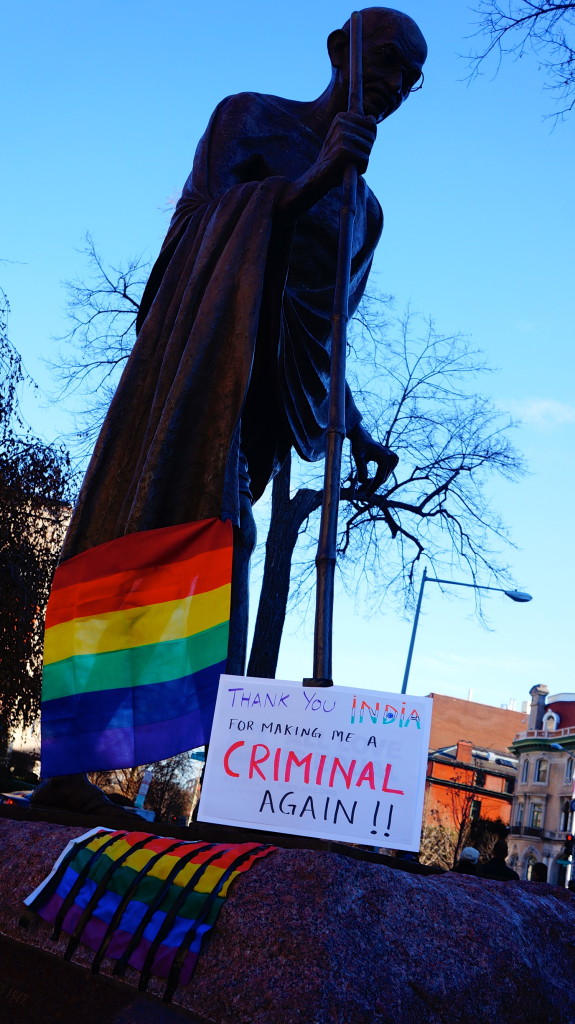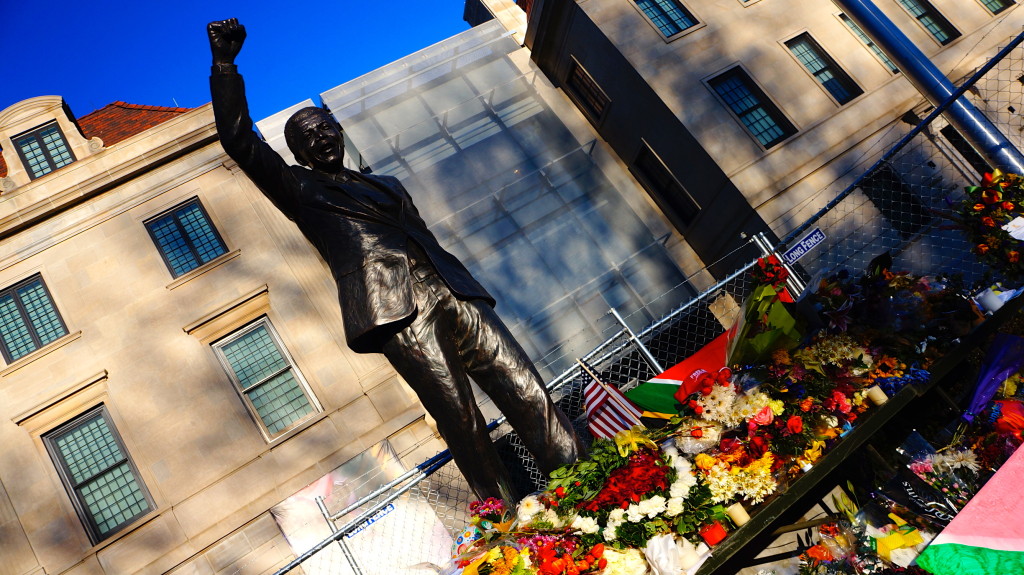
In a setback for human rights in the world’s largest democracy, the Supreme Court of India early Wednesday re-criminalized same-sex conduct in a decision that directly affects millions of LGBT individuals.
The court was considering a 2009 decision by the Delhi High Court, Naz Foundation v. Govt. of NCT of Delhi, that found much of Section 377 of the Indian Penal Code unconstitutional. Section 377 dates from the British colonial era in India — its origin lies in an 1860 law that prohibits ‘carnal intercourse against the order of nature,’ essentially criminalizing same-sex conduction. When the Delhi High Court handed down its ruling in 2009, it narrowed its reading of Section 377 to exclude adult consensual same-sex conduct, though the law continued to apply to sex with minors and non-sexual conduct.
Today’s decision by India’s Supreme Court, however, invalidates that interpretation, making same-sex conduct once again a criminal offense — think of it as the reverse of the US Supreme Court’s 2003 landmark decision in Lawrence v. Texas, in so much as the Supreme Court of India had the opportunity to decriminalize same-sex conduct in one fell swoop. Instead, India’s Supreme Court ruled that it was up to the parliament, not India’s courts, to invalidate Section 377. The effect is to criminalize same-sex relations at a time when most countries are moving toward greater LGBT rights in both judicial and legislative terms.
The 2009 decision was a landmark moment at the time for LGBT activists in India, who believe that the legacy code violates the guarantees to equality, freedom of expression and personal liberty in the Indian constitution. The Delhi High Court (think of it as a kind of cross between a state supreme court in the United States and the federal DC Circuit Court of Appeals) itself took seven years to hold hearings in the Naz Foundation case, and the verdict was delivered eight years after the case was originally filed. Here’s a portion of the Delhi Supreme Court’s ruling from 2009:
If there is one constitutional tenet that can be said to be underlying theme of the Indian Constitution, it is that of ‘inclusiveness’. This Court believes that Indian Constitution reflects this value deeply ingrained in Indian society, nurtured over several generations. The inclusiveness that Indian society traditionally displayed, literally in every aspect of life, is manifest in recognising a role in society for everyone. Those perceived by the majority as “deviants’ or ‘different’ are not on that score excluded or ostracised. Where society can display inclusiveness and understanding, such persons can be assured of a life of dignity and non-discrimination. This was the ‘spirit behind the Resolution’ of which Nehru spoke so passionately. In our view, Indian Constitutional law does not permit the statutory criminal law to be held captive by the popular misconceptions of who the LGBTs are. It cannot be forgotten that discrimination is antithesis of equality and that it is the recognition of equality which will foster the dignity of every individual.
It’s difficult to categorize the state of LGBT rights in a country as diverse as India with over 1.2 billion people across 1.2 million square miles, but LGBT individuals face myriad challenges in a country where same-sex marriage and adoption are not recognized and no anti-discrimination laws exist. India’s relatively conservative culture means that there’s a lot of opposition to same-sex attraction, both culturally and religiously. Religious groups, for example, especially within India’s Muslim and Christian communities, applauded today’s decision.
While Section 377 was never regularly enforced, it was nonetheless widely used to harass LGBT individuals.
As supreme courts often like to do, India’s supreme court lobbed the issue back to the elected branch of government:
However, keeping in mind the importance of separation of powers and out of a sense of deference to the value of democracy that parliamentary acts embody, self restraint has been exercised by the judiciary when dealing with challenges to the constitutionality of laws. This form of restraint has manifested itself in the principle of presumption of constitutionality. Continue reading India’s Supreme Court re-criminalizes same-sex conduct in LGBT setback →
![]()
![]()




